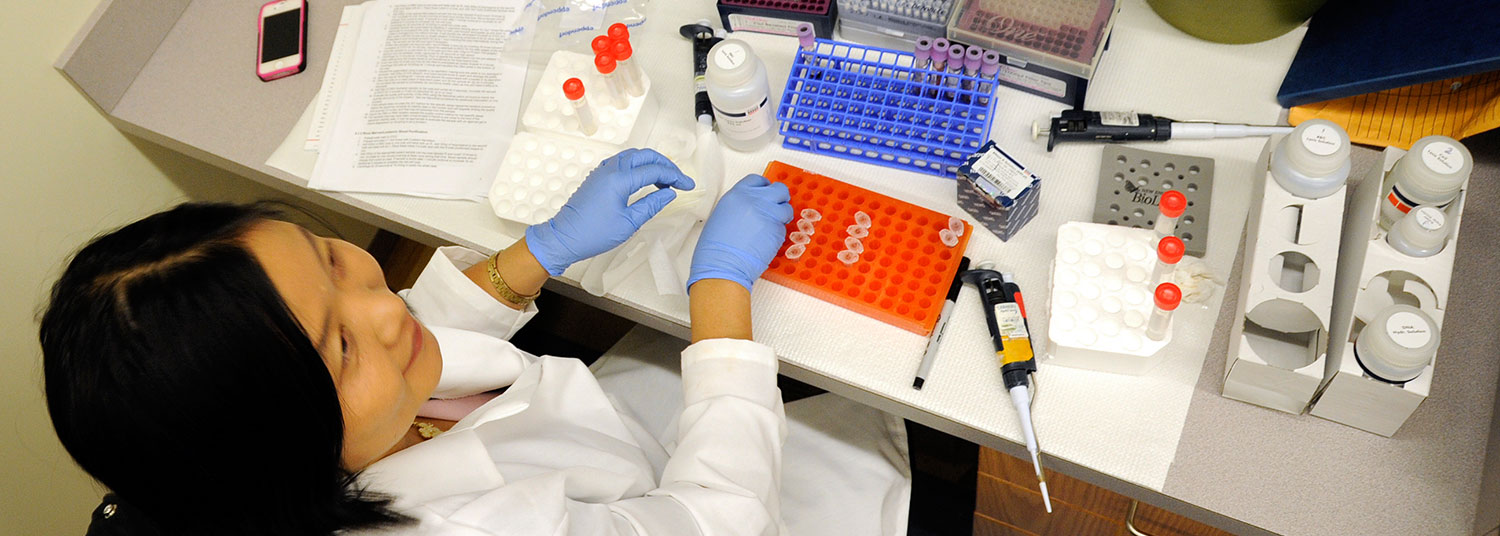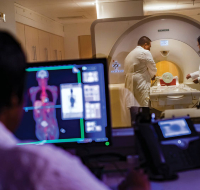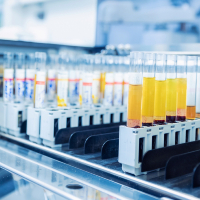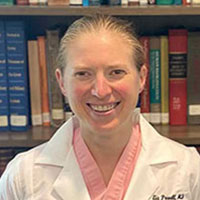 Advanced Resuscitation in Combat Casualty Care (ARC3) Laboratory
Advanced Resuscitation in Combat Casualty Care (ARC3) Laboratory
The ARC3 Laboratory collaborates with the Air Force Research Laboratory (AFRL) to support operationally relevant research. Its mission is supported through infrastructure, lab space, and collaborative relationships to promote the integration of military and civilian personnel. ARC3 strives to foster future operational clinicians and researchers and specializes in austere critical care, combat casualty care, and military and prehospital relevant research.
Center for Advanced Imaging Research (CAIR)
The Center for Advanced Imaging Research (CAIR) focuses on developing and using cutting-edge imaging modalities such as advanced magnetic resonance imaging (MRI), hyperpolarized imaging, positron-emission tomography (PET), and focused ultrasound.
Clinical Core Research Laboratory (CCRL)
The Clinical Core Research Laboratory (CCRL) is committed to advancing biomarker science worldwide through expert design, methodological rigor, diligent conduct and thorough documentation in an environment of academic excellence and collaborative sponsor engagement.
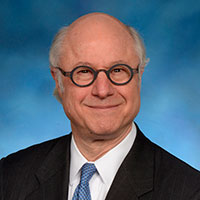 Civin Lab
Civin Lab
The breakthrough discovery by Curt Civin, MD, Director, Center for Stem Cell Biology & Regenerative Medicine, of the CD34 lympho-hematopoietic stem cell antigen and monoclonal antibody has accelerated basic research in stem cell and leukemia biology and improved stem cell transplantation for thousands of patients.
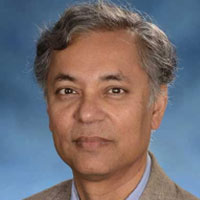 DasSarma Lab
DasSarma Lab
The DasSarma Laboratory was established in 1986 by Shiladitya DasSarma, PhD, soon after the discovery of the Archaea. Since then, the lab has been studying these novel microbes and their mechanisms of adaptation to challenging habitats, including extreme environments and the human microbiome.
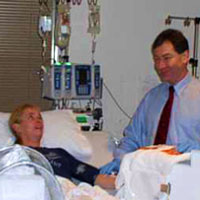 Davis Research Lab
Davis Research Lab
The Davis Research Laboratory performs research in the area of diabetes. Led by Principal Investigator and leading diabetes researcher Stephen N. Davis, MBBS, the lab focuses on glucose counterregulatory mechanisms (neuroendocrine, autonomic nervous system, and metabolic effects) in response to low blood sugar (hypoglycemia) and high blood sugar (hyperglycemia).
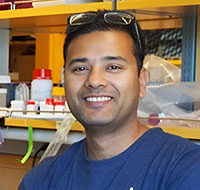
Garg Lab: Molecular Mechanisms of Mitochondrial Transport & Electrical Signaling
Headed by Vivek Garg, PhD, Assistant Professor of Pharmacology & Physiology, the Garg Lab focuses on understanding molecular physiology of mitochondrial membrane transport that in turn regulates ATP production, metabolism, redox homeostasis, and cell death.
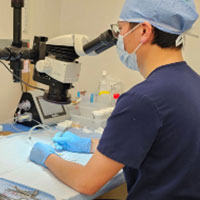 Krupnick Lab
Krupnick Lab
Headed by Alexander S. Krupnick, MD, the Peter Angelos Distinguished Professor of Surgery, the Krupnick Laboratory focuses its translational research on two clinically relevant areas: immunotherapy for thoracic malignancies and lung transplant immunoregulation. The laboratory has discovered several unique features of lung cancer, which we have utilized to develop a first-in-class retargeted cytokine designed to stimulate natural killer cells specifically and precisely for the treatment of lung cancer.
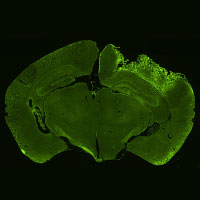 Lab for the Study of Central Nervous System Injury
Lab for the Study of Central Nervous System Injury
The Laboratory for the Study of Central Nervous System Injury uses a multidisciplinary approach to study mechanisms of cell death and recovery following injury. We utilize a wide variety of experimental techniques: molecular and cellular biology, biochemistry, pharmacology, histology/histochemistry, behavioral assessment, magnetic resonance imaging and spectroscopy, and molecular modeling.
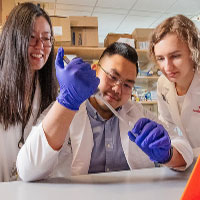 Laboratory of Translational Redox Medicine (TRx Med)
Laboratory of Translational Redox Medicine (TRx Med)
Led by Dean Mark Gladwin, MD, Professor of Medicine, the Laboratory of Translational Redox Medicine (TRx Med) conducts biomedical research focusing on blood and vascular tissues, where key "redox-sensitive" hemoproteins largely appear, and abnormal changes in the redox status of these hemoproteins are hallmarks of many vascular and pulmonary disease states.
 Precancer Genomics Lab
Precancer Genomics Lab
The Precancer Genomics Lab is dedicated to understanding cancer at its earliest stages, even before it fully develops. Led by Jeremy L. Davis, Professor and Chief of Surgical Oncology, the lab's research explores the intricate genomic landscape of precancerous cells and their microenvironment, seeking to identify vulnerabilities and unlock strategies for cancer interception and, ultimately, a future with less cancer.
 Translational Neuroengineering & Neuroscience Lab
Translational Neuroengineering & Neuroscience Lab
The Translational Neuroengineering & Neuroscience Lab conducts research that includes the development of novel translational tools for uncovering mechanisms of brain injury after cardiac arrest, ways to promote nerve regeneration after peripheral nerve injury, and therapeutic methods to promote neuroregeneration and neuroprotection after spinal cord injury.
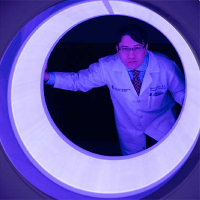 University of Maryland Trauma Radiology Artificial Intelligence Lab (TRAIL)
University of Maryland Trauma Radiology Artificial Intelligence Lab (TRAIL)
The University of Maryland Trauma Radiology Artificial Intelligence Lab (TRAIL) was founded by David Dreizin, MD, to promote timely, accurate diagnosis for hemorrhage-related injuries in trauma victims using computer vision and machine learning.
 Yang Lab
Yang Lab
The Yang Lab, headed by Peixin Yang, PhD, the Christopher R. Harman, MD Endowed Professor of Obstetrics, Gynecology, and Reproductive Sciences, is working to investigate the effects of factors such as oxidative stress, cellular organelle stress, and high glucose environments on embryonic development.

